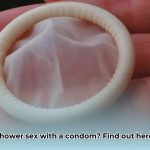Does soap expire? It’s a question we’ve all likely pondered while staring at a questionable bar in the shower. This guide tackles this common query, separating fact from fiction and offering practical advice on maximizing your soap’s lifespan.
Debunking the Myth of Eternal Soap
The idea that soap lasts forever is a common misconception. While it doesn’t spoil like food, soap’s quality can degrade over time. This degradation affects fragrance, lather, and potentially even cleaning power. So, while that dusty bar lurking in your bathroom probably won’t harm you, it might not perform at its best.
Deciphering the Expiration Date
That date on your soap isn’t a strict expiration date. It’s more of a “best by” date, indicating when the soap is at its peak freshness and effectiveness. After this date, the fragrance and lather might diminish, but the soap likely remains safe to use.
Soap Variety Show: Shelf Life by Type
Different soaps have different lifespans. Factors like ingredients and manufacturing processes play a role.
Commercial Bar Soap
Packed with preservatives, commercial bar soap is the long-distance runner of the soap world. It can often last 2-3 years, sometimes even longer, without significant degradation.
Liquid Soap
With a higher water content, liquid soap is a bit more sensitive. Opened bottles typically maintain peak quality for about a year, while unopened bottles can last 2-3 years.
Natural and Homemade Soap
Natural and homemade soaps, often crafted without synthetic preservatives, generally have a shorter shelf life of 6-12 months, possibly up to two years depending on the recipe. They are more susceptible to changes in scent, texture, and potentially rancidity due to the use of natural oils.
Here’s a handy table summarizing typical shelf life:
| Soap Type | Shelf Life (Approximate) |
|---|---|
| Commercial Bar Soap | 2-3 years |
| Liquid Soap | 2-3 years (unopened), ~1 year (opened) |
| Natural/Homemade Soap | 6-12 months (sometimes up to 2 years) |
Identifying an Aging Soap: A Visual Guide
How can you tell if your soap is past its prime? Here are some key indicators:
- Faded Fragrance: A weakened or absent scent suggests the essential oils have evaporated.
- Lather Letdown: Reduced lathering ability indicates the surfactants, responsible for creating bubbles, have degraded.
- Color Changes: Significant discoloration can be a sign of ingredient breakdown or oxidation.
- Rancid Smell: A funky odor, especially in natural/homemade soaps, indicates rancid oils and warrants discarding the soap.
- Texture Troubles: Cracking, crumbling, excessive dryness, unusual sliminess, or mushiness all signal potential issues.
Soap Storage: Tips for Longevity
Proper storage significantly extends soap’s lifespan.
- Dryness is King: Allow bar soap to dry completely between uses. Employ a well-draining soap dish. For liquid soap, ensure the cap is tightly closed.
- Cool, Dark, and Dry: Store soap away from direct sunlight, heat, and humidity. A cool, dry cupboard or shelf is ideal.
- Ventilation for Bar Soap: Ensure adequate airflow around bar soap to prevent moisture buildup. Avoid airtight containers unless specifically recommended for certain soap types.
Using “Expired” Soap: Risks and Repurposing
Using soap past its “best by” date is unlikely to cause harm. However, significantly altered soap (rancid smell, drastic color or texture change) should be discarded, especially if you have sensitive skin.
Slightly aged soap can be repurposed for tasks like laundry, cleaning, or even as drawer sachets.
The Science of Soap Degradation (A Deeper Dive)
Soap degradation involves several chemical processes, including oxidation (especially affecting natural oils), hydrolysis (reaction with water), and potentially microbial activity. Ongoing research continues to refine our understanding of these processes.
Exploring the World of Cleansing
Interested in expanding your cleansing horizons? Consider natural alternatives or delve into DIY soap making. This offers control over ingredients and allows you to create custom scents.
Soap Storage FAQs
-
What’s the best way to store bar soap? Use a well-draining soap dish in a cool, dry, and well-ventilated area.
-
How should I store liquid soap? Keep it in its original container, tightly capped, in a cool, dry place.
By following these guidelines and understanding the nuances of soap expiration, you can make informed choices, minimize waste, and maximize the enjoyment and effectiveness of your cleansing routine.
- Mindfulness Activities PDF Offers Free Worksheets and Exercises - February 23, 2026
- Meditation Guide Book Picks from Top Mindfulness Teachers - February 22, 2026
- Best Books to Start Meditation for Beginners and Skeptics - February 21, 2026













